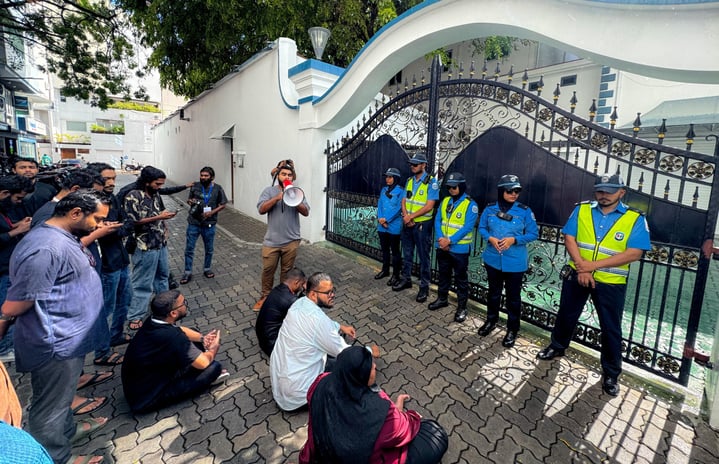Maldives Media and Broadcasting
Regulation Bill, recently submitted to the Parliament by independent MP Abdul
Hannan AbuBakuru, and backed by the ruling People’s National Congress,
represents a significant and highly contentious legislative proposal with
significant implications for the future of press freedom and democracy in the
country.
Maldives Media Council, Maldives Journalists
Association, along with various media outlets and several international press
freedom organizations, have opposed the bill and called for its withdrawal.
They argue that its provisions are not designed to foster a more accountable
media but rather to centralize control of the press under the government and
the ruling party, thereby threatening existing constitutional protections for
freedom of expression and journalism.
The bill as it stands
The bill was accepted to parliament in
an extraordinary sitting held on August 27 while parliament is officially in
recess. The bill was accepted through votes in favour from 49 MPs of ruling
PNC, with only 12 MPs voting against.
The bill has been forwarded to the
Independent Institutions Committee for review, which has announced that it will
be accepting comments from the public. The committee is also set to meet with
media representatives on Monday to discuss their concerns regarding the bill.
The bill seeks to dissolve the
existing Maldives Media Council (MMC) and the Maldives Broadcasting Commission
(BroadCom), merging their functions into a new, consolidated entity; Maldives
Media and Broadcasting Commission.
The current media landscape in
Maldives is regulated by two primary bodies, which include Maldives Media
Council, overseeing print and online media, and Maldives Broadcasting
Commission (BroadCom), which regulates broadcast media. MJA operates as a
professional body representing journalists. This system, while not without its
own challenges, has historically provided a degree of separation and
self-regulation.
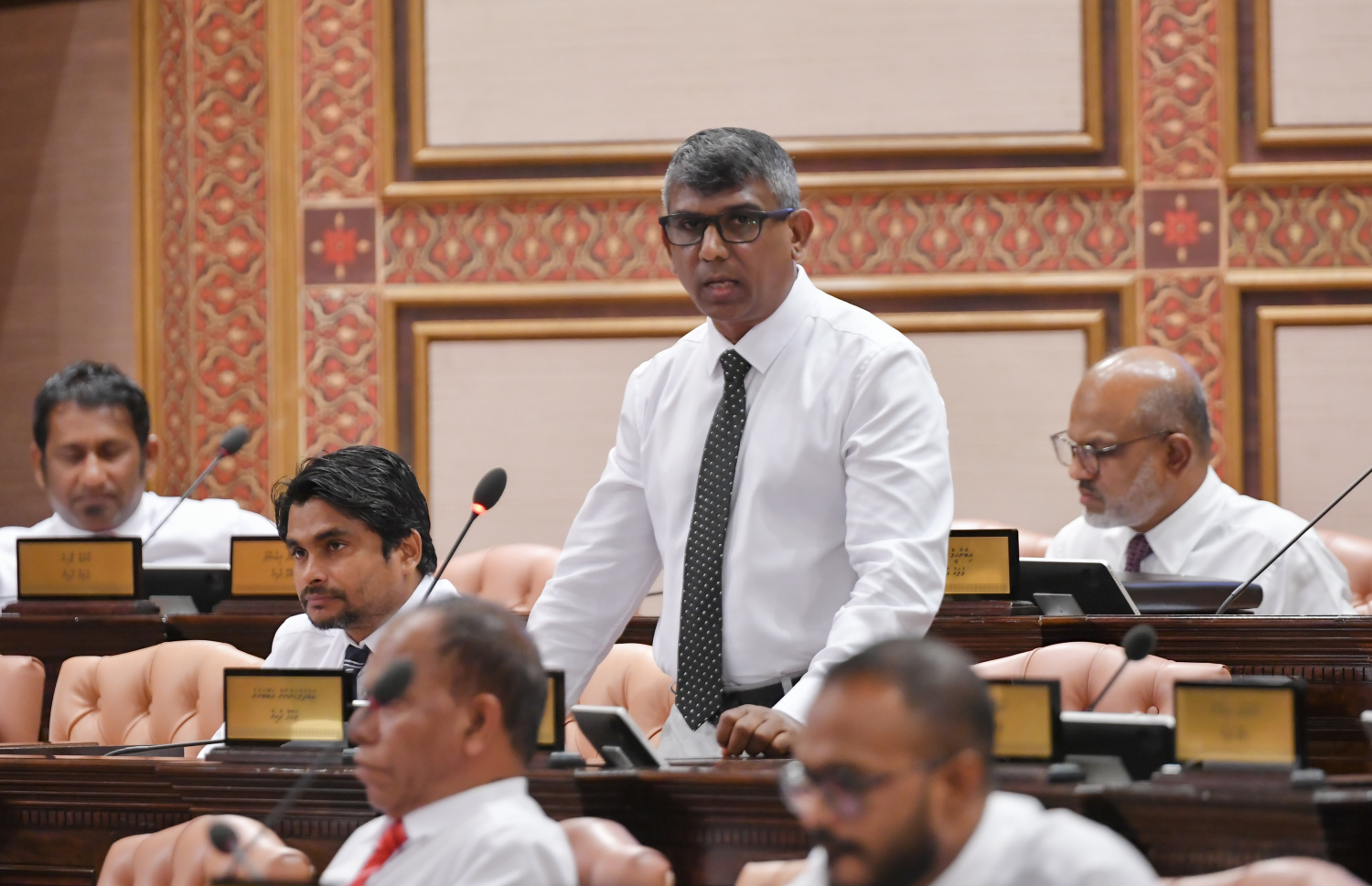
Notably, this is not the first
attempt to introduce such legislation. A similar bill, tabled by the same MP
last year, was withdrawn on November 19, 2024 following strong public backlash
and opposition from media bodies. The bill was withdrawn after the first
hearing, while it was scheduled for preliminary debate. MP Hannan had
previously said that he is withdrawing the bill because President Dr Mohamed
Muizzu announced that the bill stands against his policies.
The core of the bill lies in its
proposal to establish a new regulatory body with sweeping powers, replacing the
current system with a single, consolidated commission. The structure and powers
of the proposed Maldives Media and Broadcasting Commission have drawn the most
significant criticism.
The bill proposes a seven-member commission,
with the President having the power to appoint three of these members with
Parliament approval. The remaining four members would be elected by the media.
The authority to appoint the Chair of the committee is also placed on the President
The bill states that journalists who
breach ethical standards set by the commission stand to face significant fines,
and revocation of the media outlets registry. Individual journalists can face
fines of between MVR 5,000 to MVR 25,000, while the outlets can be fined up to MVR
100,000.
Another provision grants the
Parliament powers to dismiss the elected members of the Commission composition.
This is seen as a direct way for the executive and the political party holding
parliament majority, at present the ruling party, to exert total control over the
media's regulatory body.
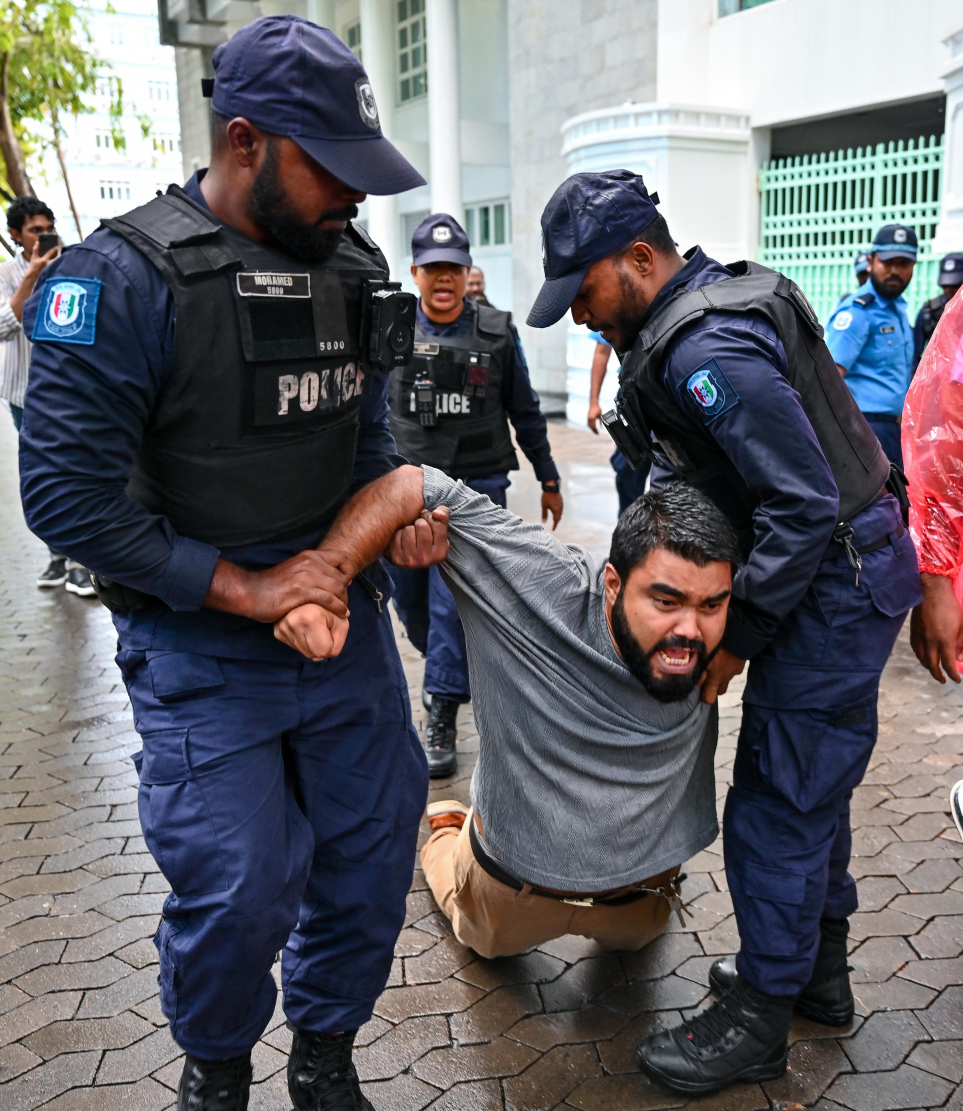
The bill also states that
journalists must adhere to ethical standards that include "promoting the
principles of upholding an elected government." Such ambiguous language
could be selectively used to target outlets critical of the government or to
stifle investigative reporting on sensitive issues including, but not limited
to, corruption.
Mounting resistance to the Media Bill
One of the main grievances of the
media community is that the bill was drafted without any consultation with
journalists, their unions, or media outlets. This lack of consultation stands
in direct contrast to earlier promises from the Attorney General to involve the
media community in drafting any such legislation.
By dissolving the independent
Maldives Media Council and placing regulatory authority under a
government-controlled body, the bill would dismantle the current system of
self-regulation and replace it with direct state control. This would inevitably
lead to a drastic decline in the Maldives' standing on international press freedom
indices.
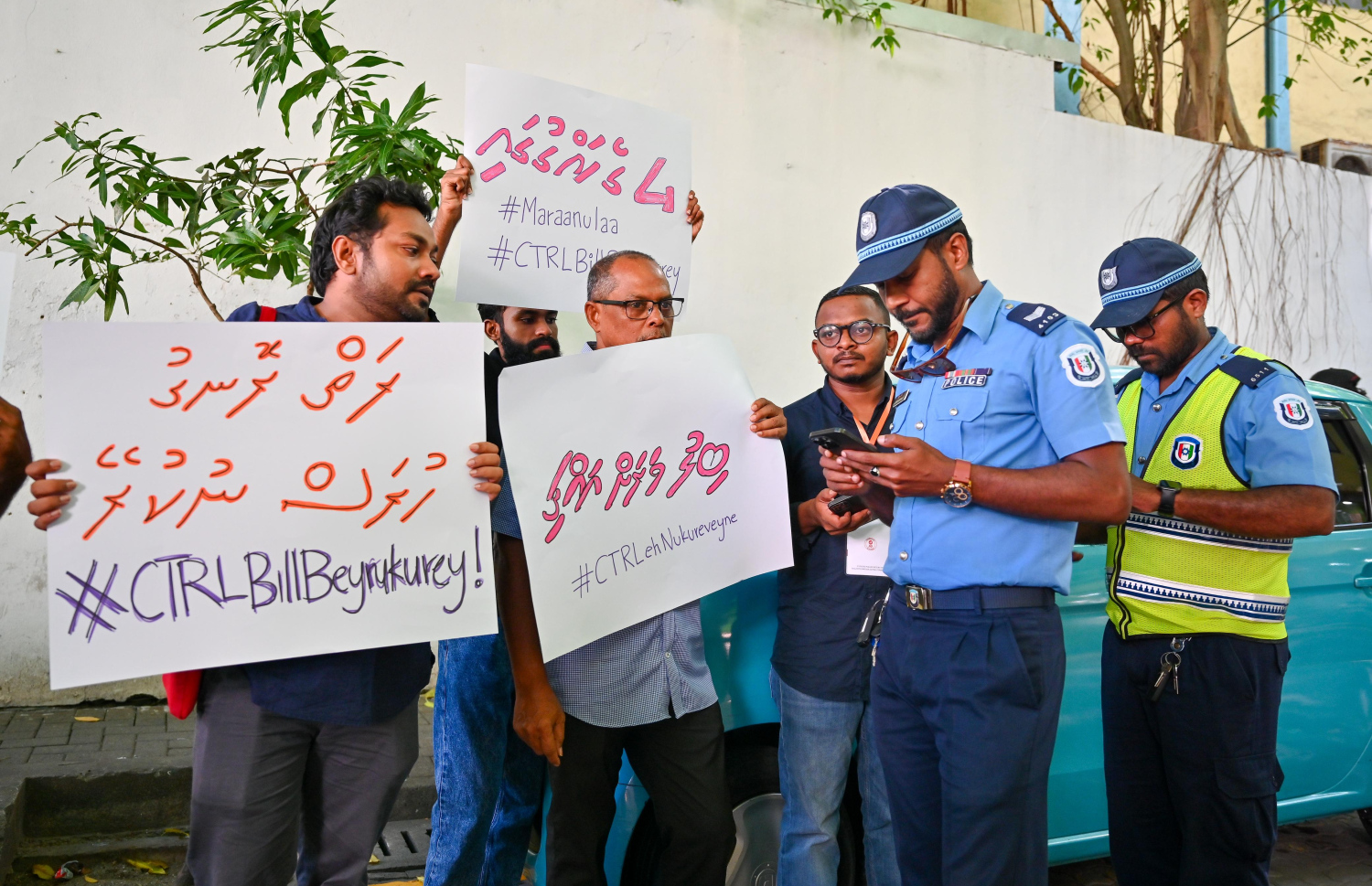
Even at present, Maldives is ranked
111th out of 180 countries on the 2023 World Press Freedom Index by
Reporters Without Borders (RSF). This indicates a significant drop from
Maldives’ 2021 ranking as the 72nd. Ratification of this bill would
only see Maldives sinking far lower on the index.
The threat of harsh financial
penalties, suspension of operations, and the potential for a
government-appointed commission to cancel a media outlet's registration would
likely cause journalists and media outlets to self-censor to avoid repercussions,
particularly on sensitive topics such as corruption, abuse of power, and human
rights issues. This would severely diminish the media's ability to act as a
watchdog on those in power.
By restricting the ability of
journalists to investigate and report on matters of public interest, the bill
would compromise accountability and transparency, creating an environment where
corruption and misconduct could go unchecked.
The bill is seen by many as a
regressive step that would roll back the hard-won democratic progress of the
past decade, with the opposition stating that the bill is an attempt to
dismantle media freedom.
The timing of the bill's submission,
during an extraordinary parliamentary sitting has also raised concerns, with
critics suggesting a deliberate attempt to expedite its passage without
adequate public scrutiny.
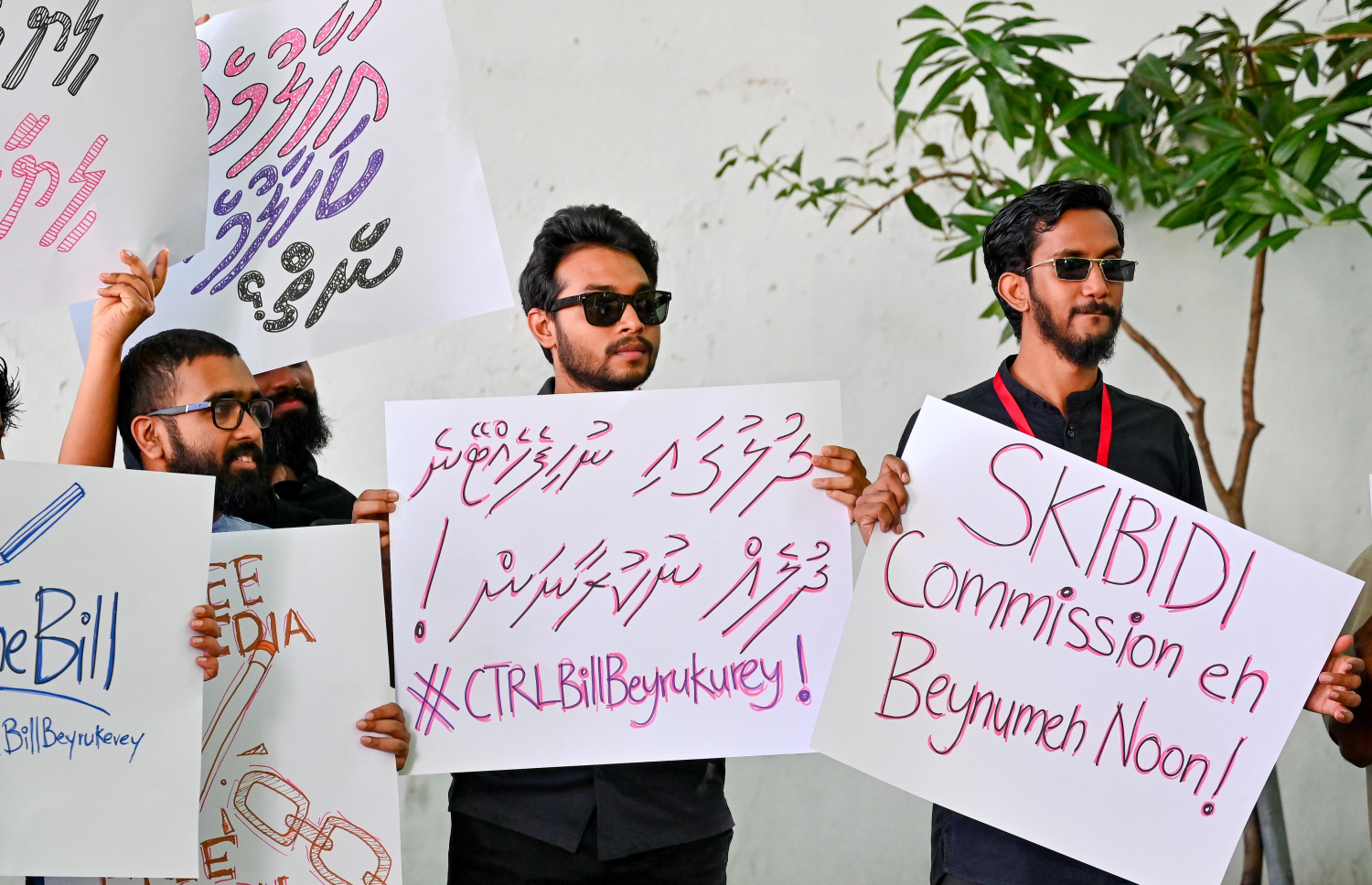
Maldives Media Council and Maldives
Journalists Association have released statements opposing the bill and calling
for its withdrawal, stating that the bill would seriously infringe on the
constitutional right to freedom of the press and other related rights.
Journalists and other media personnel have also begun signing a petition
against the bill. They have stated their willingness to engage in proper
discussions for genuine media reform but believe this bill is not the vehicle
for it.
Journalists had staged protests as
the bill was placed on the agenda for the Parliament’s extraordinary sitting
held yesterday. Journalists had initially gathered outside the Parliament once
the sitting commenced, expressing their discontent with the bill. Once the
Parliament had voted to accept the bill, demonstrators moved to protest outside
the President’ Office, where they met with police obstruction, with some being
forced away from the area and others being briefly detained in police vehicles
before being released. Media personnel later assembled outside the presidential
palace, calling for the bill to be rejected and urging President Mohamed Muizzu
to meet with the press.
Government waves a beige flag
Responding to the continued protests
and opposition to the bill by the media, President Dr Mohamed Muizzu met with
the MJA and some senior journalists on Thursday.
He boldly claimed that this government
is ‘100% pro-media’ but failed to agree to have the bill withdrawn. In a
subsequent press conference held at the President’s Office, Attorney General Ahmed
Usham also declared he saw ‘no reason to withdraw the bill’, saying any
necessary amendments can be brought during the committee stage.
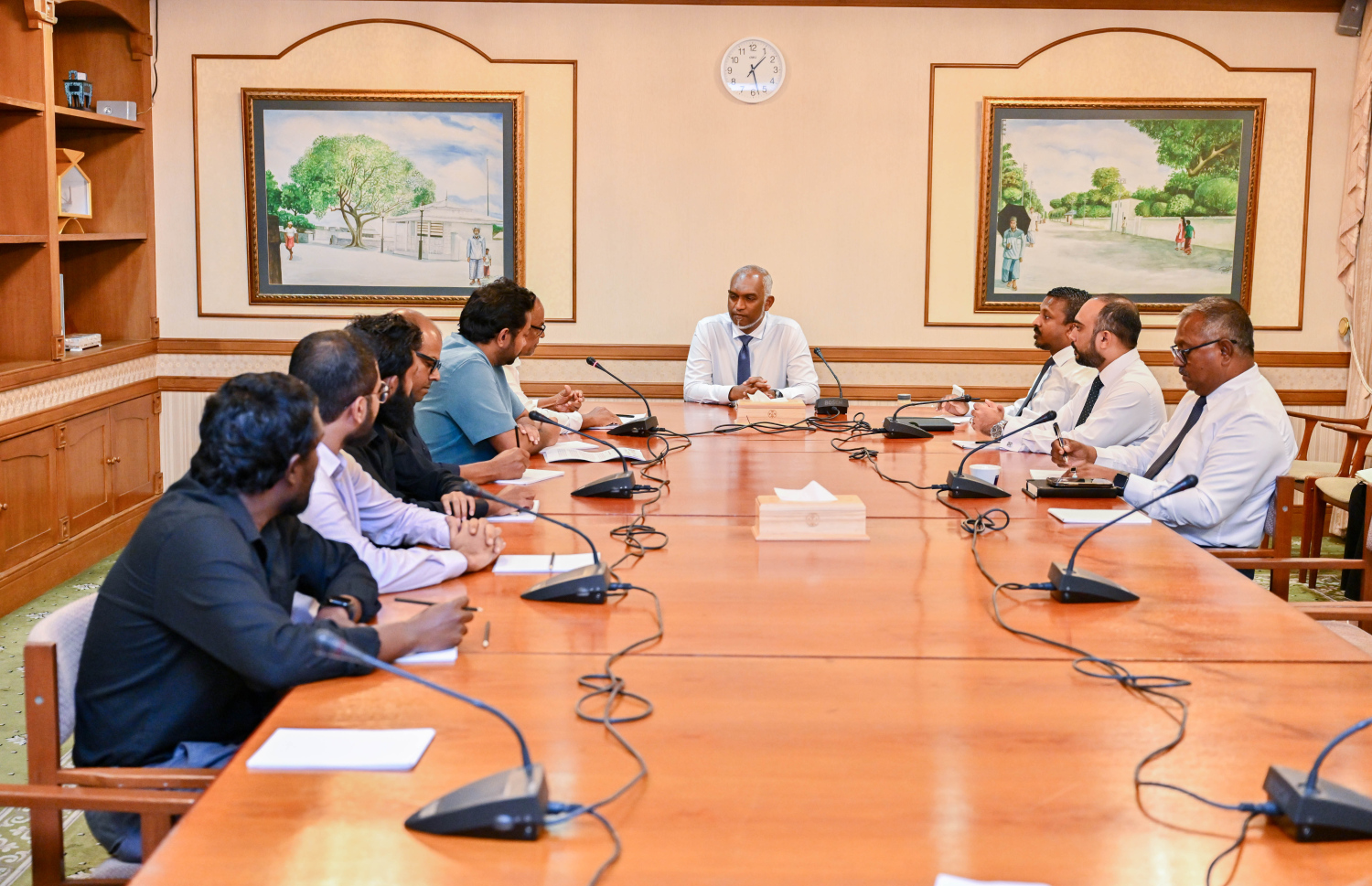
The President stated that he does
not wish for himself, or the government, to hold any authority over the proposed
media regulation commission. He stated that he neither wishes to hold the authority
to appoint members nor Chief of the commission.
Communications Minister Ibrahim Khaleel
and Youth Minister Ibrahim Waheed (Asward) also met with journalists today
where they conceded that the bill is in need of amendments. However, they maintained
that it is necessary to merge the existing bodies and replace them with the
regulatory commission.
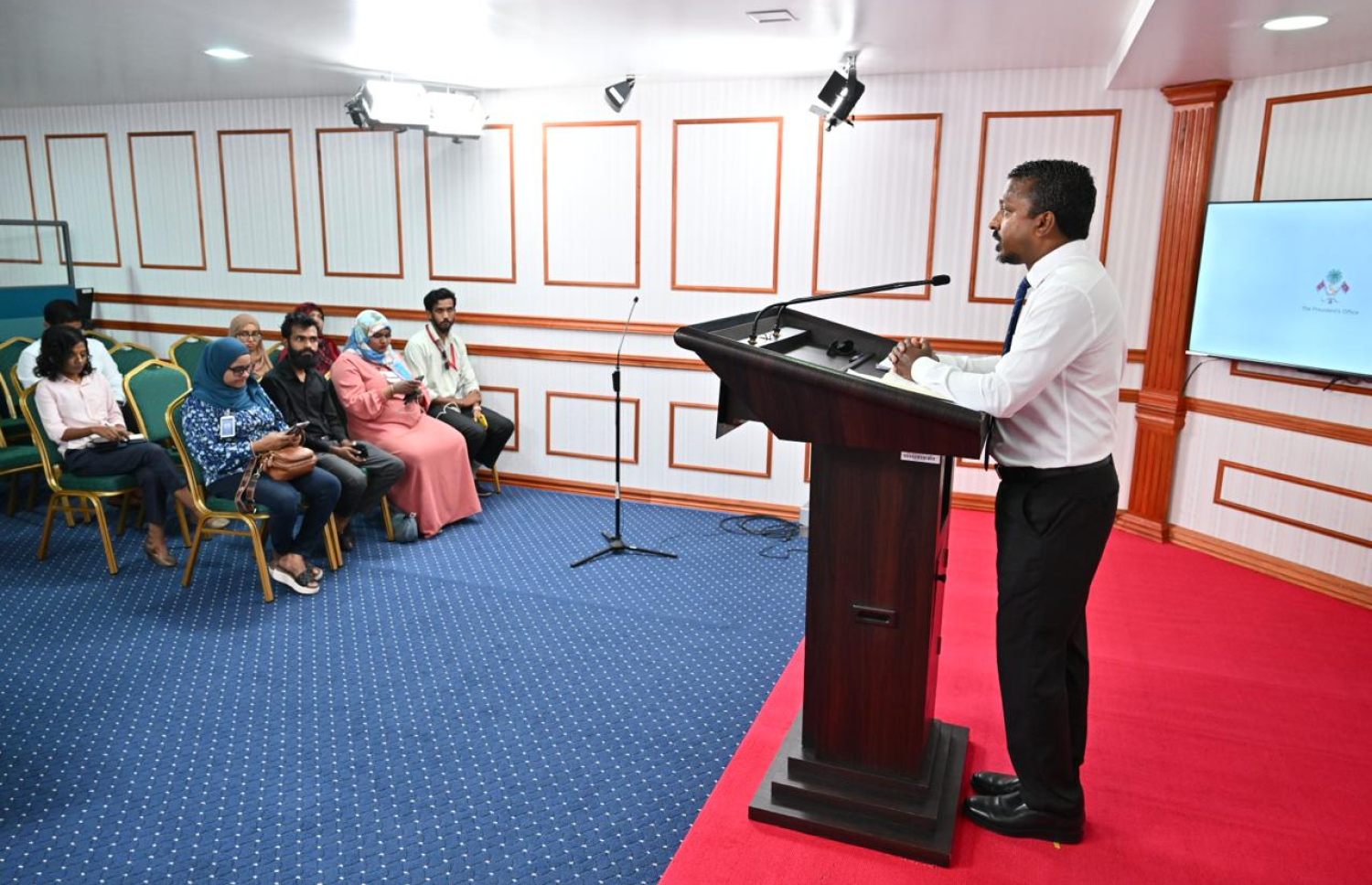
Those in favour of the bill, largely
affiliated with the ruling party, argue that it is necessary to address the
perceived shortcomings and functional overlaps of the existing regulatory
bodies and to ensure media accountability. Some members of the ruling People's
National Congress (PNC) have stated that a legislation is necessary to hold the
media accountable for what they describe as a failure to address cases related
to infringing on reputation.
However, this rationale has been
widely rejected by journalists who see it as a pretext to impose government
control.
The bill’s ambiguous language creates dangerous
loopholes that any administration could exploit, threatening to erode the
fragile press freedoms that the Maldives has only been able to experience for
less than two decades.
